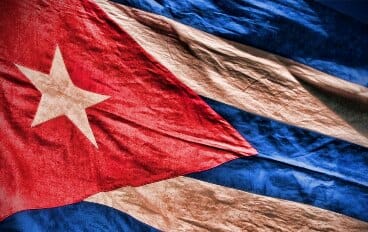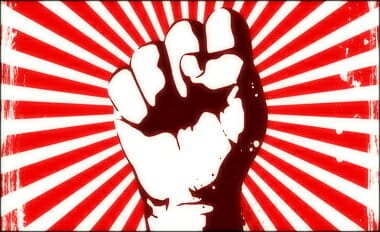1:20 Mark: During the past 150 years (relative to the 1980s), the U.S. position was that Latin America should be a colony of the United States – an amazing reading of the Monroe Doctrine, but you have to hand it to Marxist revisionists, they sure are imaginative. We told the Europeans to not attempt to re-colonize Latin America so we would be able to do colonize Latin America.
2:00 Mark: During the past 30 years (again relative to the 1980s), the U.S. has overthrown a dozen or so governments in Latin America – more left-wing revisionism. Their religious belief is that socialism works, so the fact that populist left-wing governments of Latin America failed is proof that an outside power caused them to fail. Until recently, Latin America was characterized by alternating right-wing dictatorships and populist leftwing governments (except for Argentina, which was both). Only recently has most of Latin America embraced democratic government with dominant center-right and center-right parties, undergirded by a broad middle class.
3:20 Mark: U.S. policy toward Latin America has been based on the presumption that we can destroy them anytime we wanted. Then why didn’t we? Why did we not destroy Mexico following the ascension of revolutionary socialists early during the 20th century? Why did we not destroy Cuba under the military dictator Battista or under the communist dictator Castro?
4:20 Mark: Salvador Allende was “gaining in strength” in Chile in 1973, the time of the military coup. First, this is an admission that Allende, a revolutionary socialist, only had minority support and gained power because of a split of the non-Marxist vote. Second, it is another instance where the collapse of a country under revolutionary socialism is the proof that an outside power was at work because of dogmatic belief in socialism.
We will now list the revolutionary socialist governments of Latin America and whether they are democratic or not: Cuba – a dictatorship; Venezuela – in 2009, term limits on the Presidency were lifted allowing Hugo Chavez to effectively become President-for-life; Nicaragua – in 2014, term limits on the Presidency were lifted allowing Daniel Ortega to effectively become President-for-life; Bolivia and Ecuador – in 2015, term limits on the Presidency were left allowing Evo Morales and Rafael Correa to effectively become Presidents-for-life. A 100 percent track record.
Revolutionary socialism is not democratic. It proclaims itself to be the vanguard of the working class. Its goal is to fundamentally transform society, weaning the population of egoism and replacing egoism with selfless devotion to the state. To gain power, revolutionary socialists may offer free stuff or appeal to voters based on race and gender. But, once power is gained, revolutionary socialism turns into a cult of personality.


